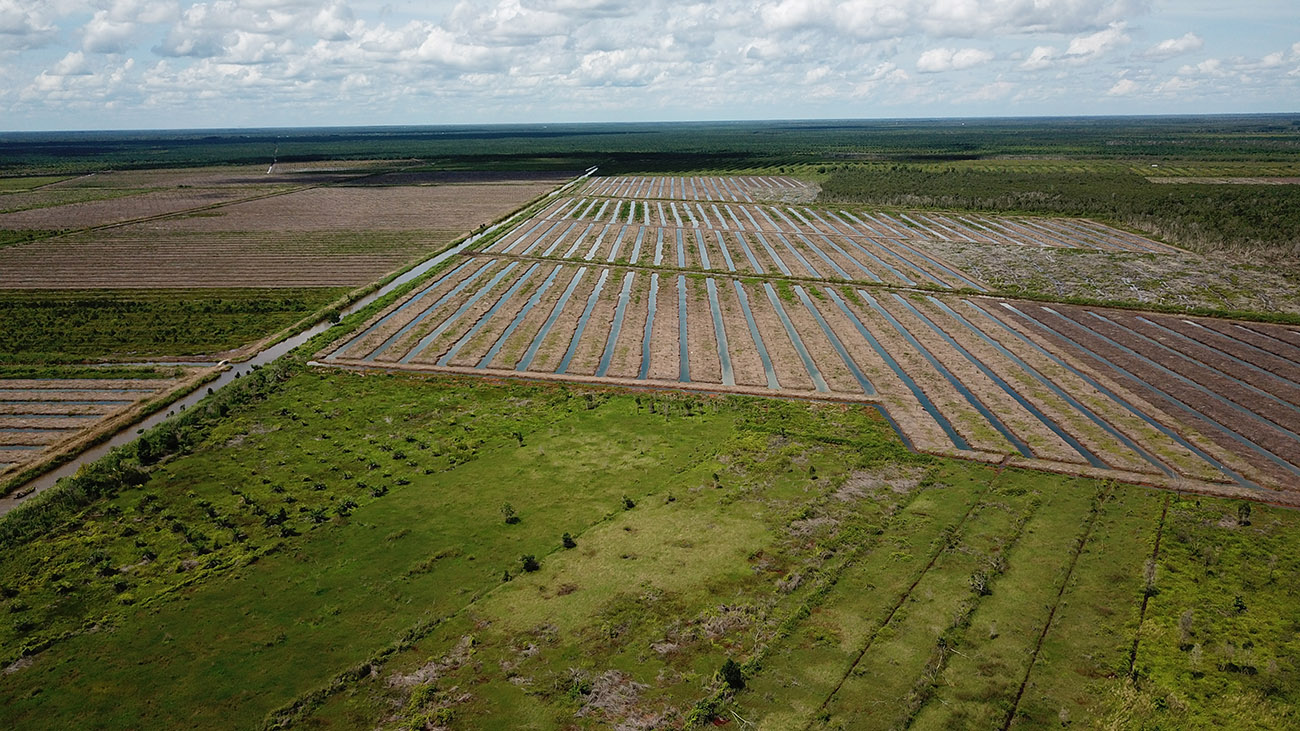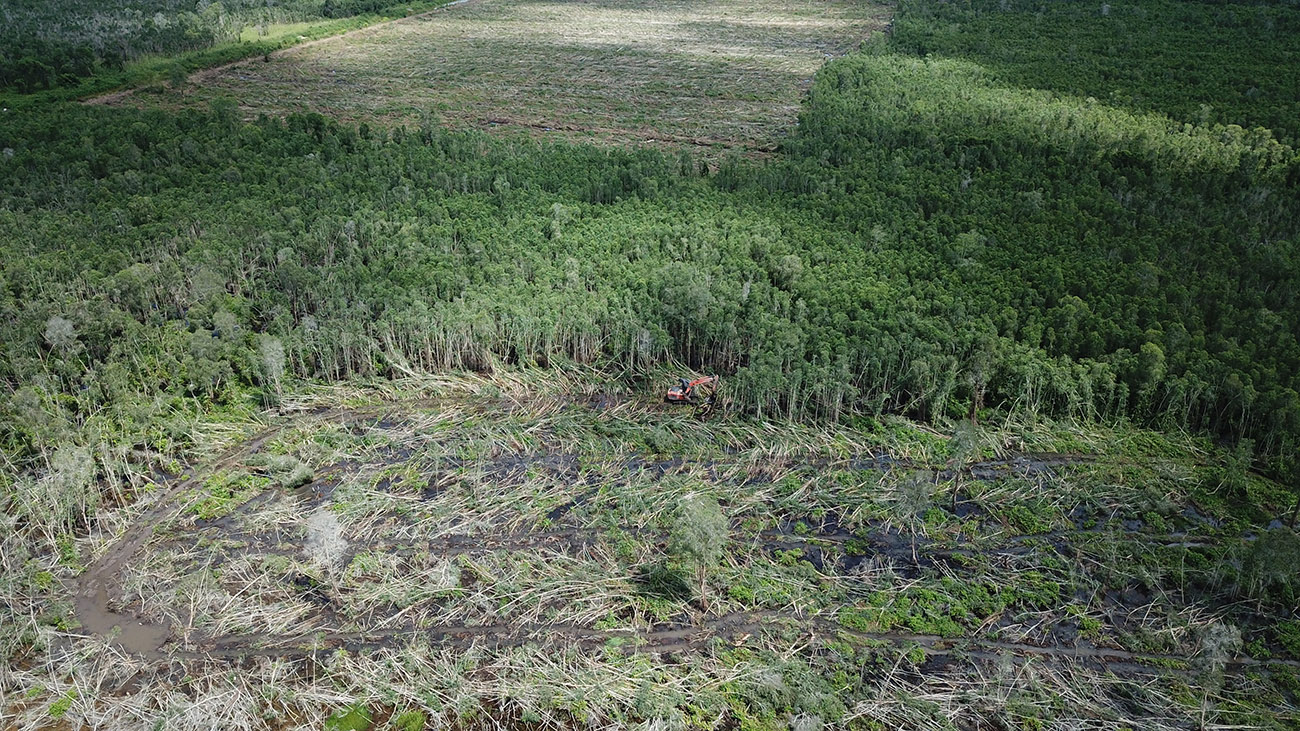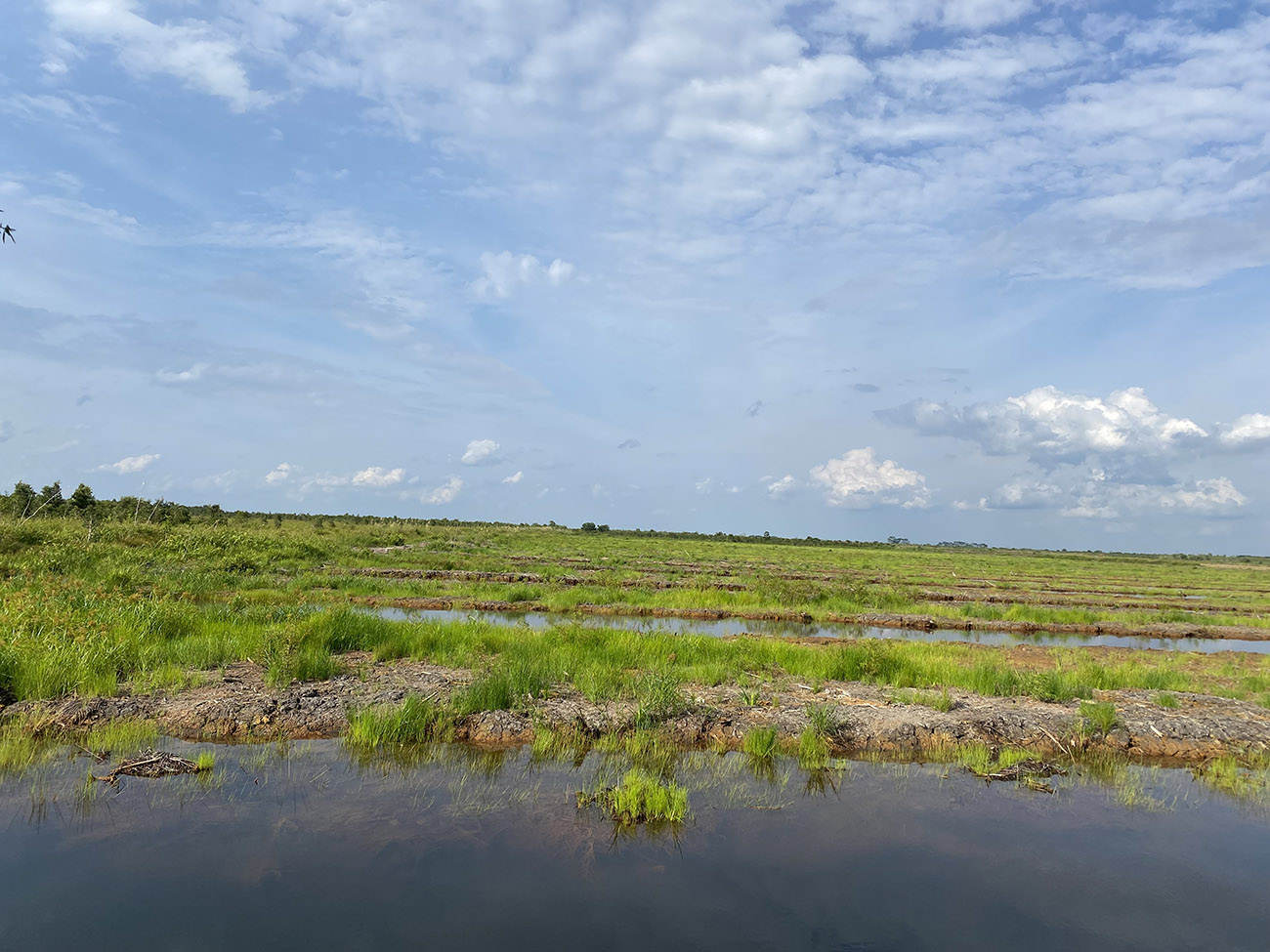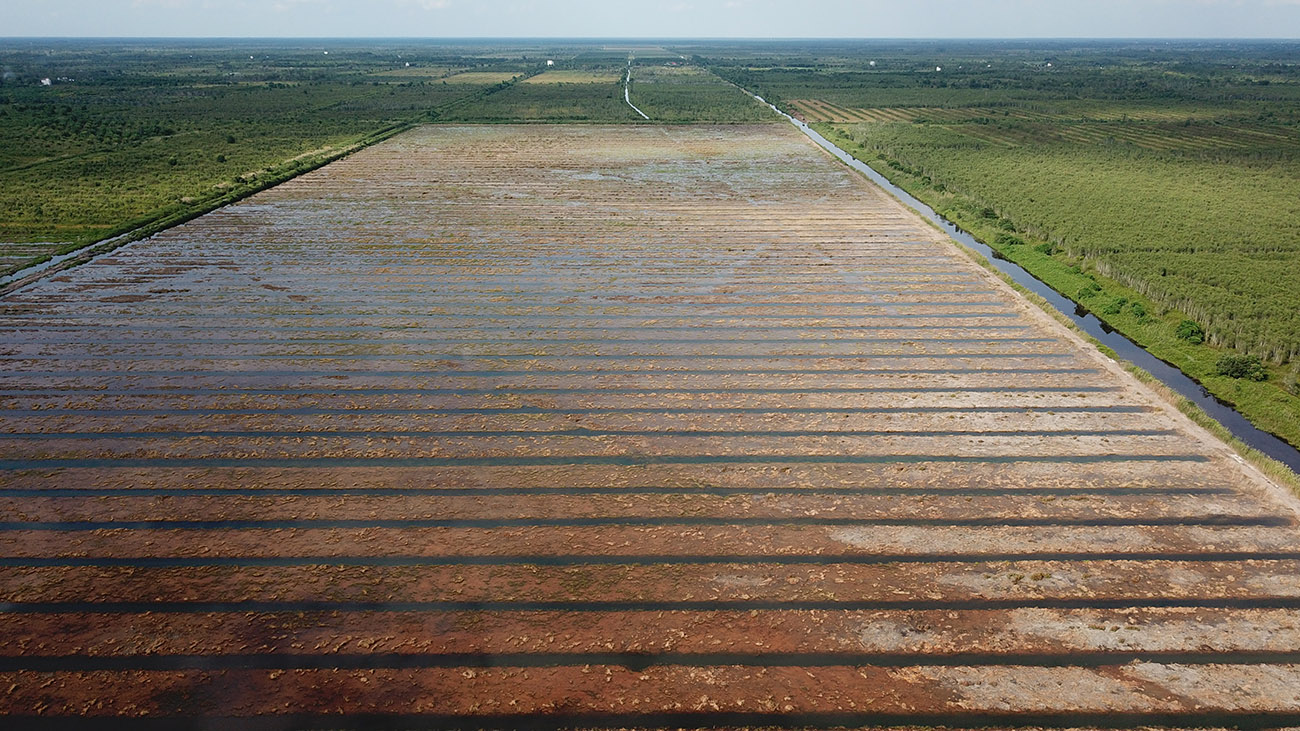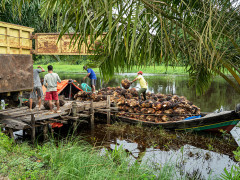Land Fire Surge 2025: Hot Weather Narrative Masks Government and Corporate Accountability
By AdminField of False
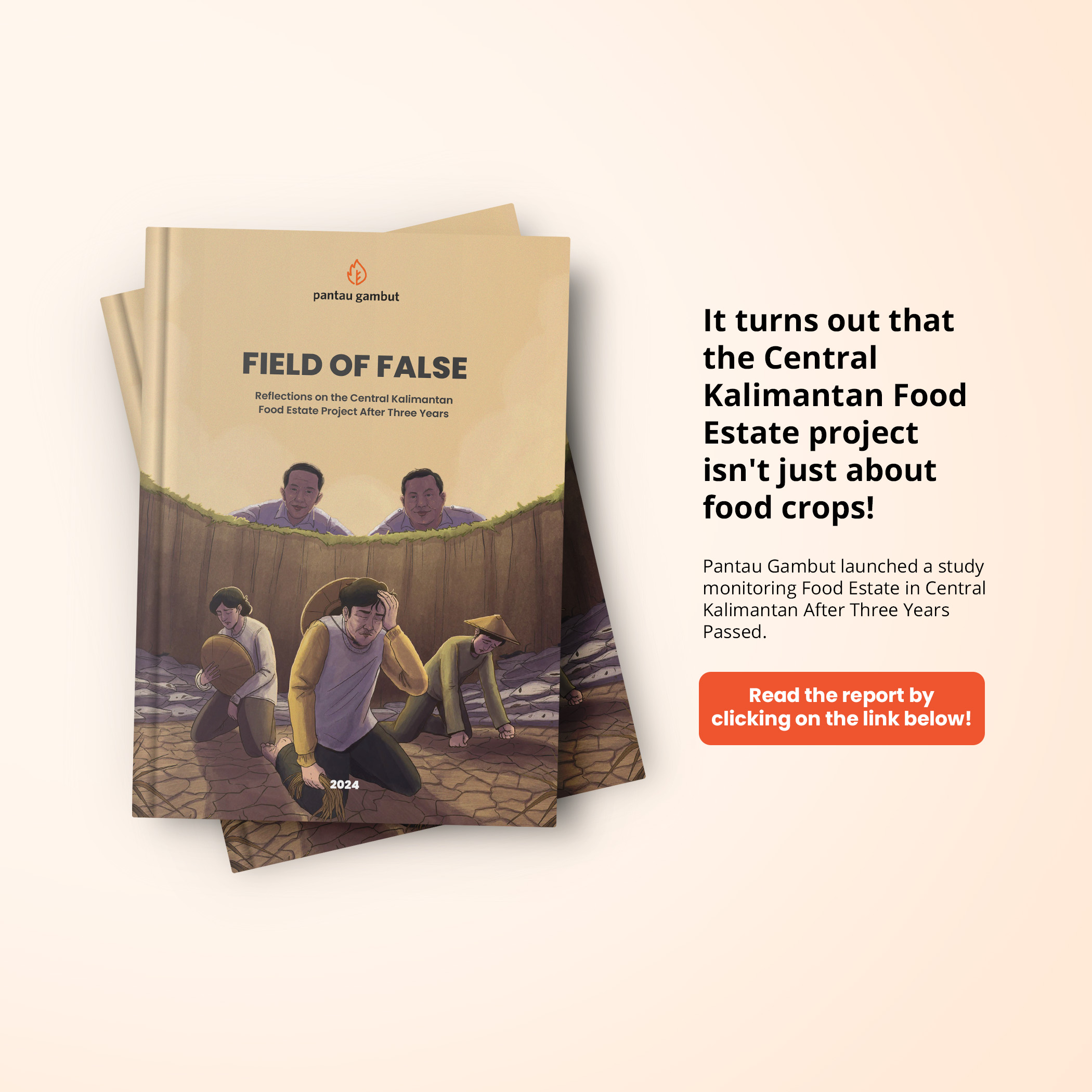
Although many have already labeled President Joko Widodo’s 2020 initiative a failure, the Central Kalimantan Food Estate area has been further expanded. Beyond Widodo's unfulfilled ambition, Prabowo-Gibran also aims to increase the harvest area by an additional four million hectares for food crops. As a priority program under the Prabowo-Gibran administration, the Food Estate is likely to serve as the basis for the formulation of the 2024–2029 National Medium-Term Development Plan (RPJMN).
The problem is, this extensification of the Food Estate runs contrary to the government’s commitment to reducing greenhouse gas emissions to net zero. The contradiction arises because the project is being implemented in the former one-million-hectare Peatland Development Project (PLG) area initiated by President Suharto. The remnants of this project have turned into a ‘carbon bomb,’ as demonstrated by the forest and land fires during 1997–1998 and 2015.
Instead of halting the Food Estate project and restoring the degraded peatlands, the government has allowed these lands to be abandoned and repurposed. Pantau Gambut found that part of the area designated as a national food granary has now been acquired by PT Wira Usahatama Lestari (WUL) for a 274.6-hectare palm oil plantation.
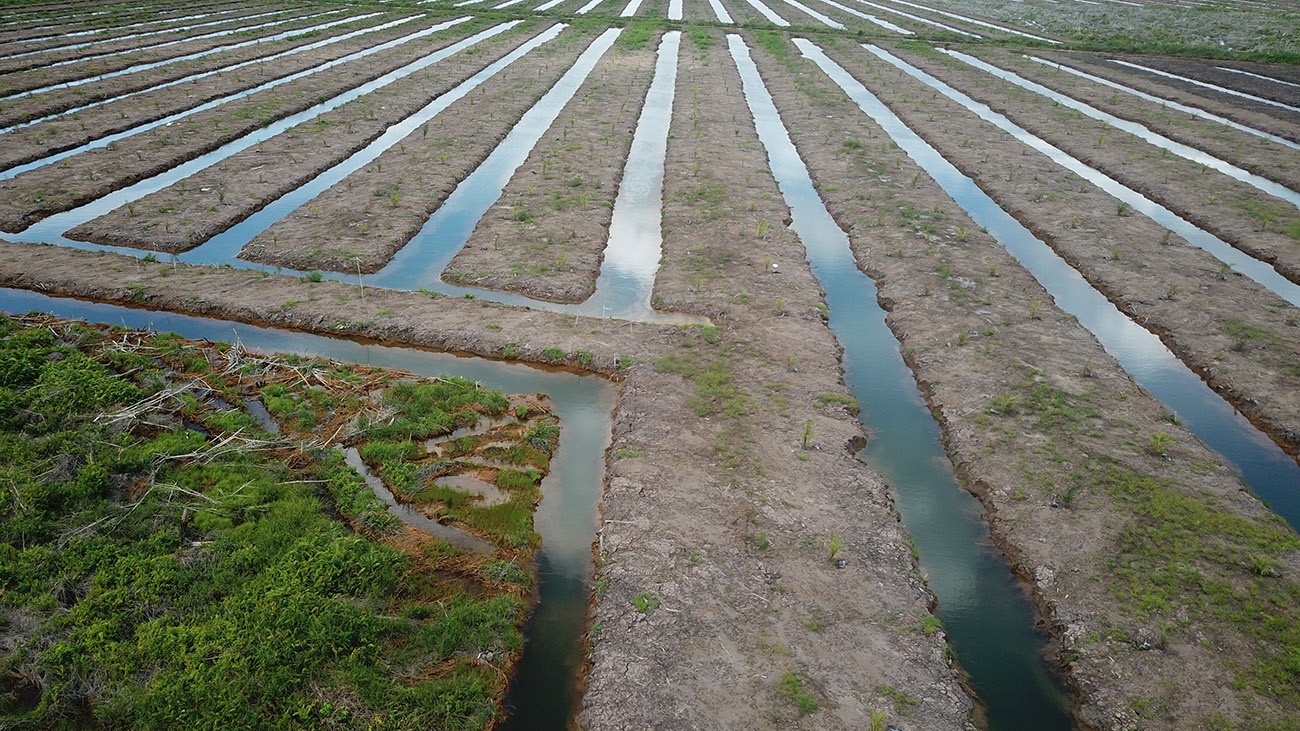
Wahyu Perdana, Pantau Gambut’s Campaign and Advocacy Manager, questioned, "How can land that should be used for food production end up under private ownership for palm oil plantations?" This is especially concerning given that the Food Estate uses Forest Area for Food Security (KHKP) lands, which should not be encumbered by forest area utilization permits. Additionally, plantation companies holding HGU permits should not be operating within the Food Estate location and should only be on Other Land Use Areas (APL).
This overlap reveals that the Food Estate project has a high potential to become a loophole for land mafia schemes, rather than upholding the much-touted slogan of 'food security.' Moreover, there are 15 other monitoring points where vegetation has been cleared and left to become overgrown with shrubs.
The repeated failures of the Food Estate project in Central Kalimantan cannot be separated from land mismatches and poor management. Numerous past studies on project failures should have served as lessons. However, the government seems unwilling to learn from history. Wahyu added, "We must not let the much-heralded slogan of food self-sufficiency turn into a 'Food Misery' tragedy."
Pantau Gambut emphasizes three key actions:
- The government must evaluate and stop the Food Estate project. The repeated failures that have led to environmental destruction and damage to peatland ecosystems are sufficient reasons to end this project.
- The government must stop exploiting peatlands and rehabilitate the degraded peatland ecosystems. The draining of peatlands for rice farming in the Food Estate project will only exacerbate environmental impacts and accelerate the occurrence of forest and land fires.
- The government must review the National Strategic Project (PSN) policy. The Job Creation Law regulating PSN makes it too easy to sacrifice environmental standards, leading to the exploitation of natural resources and resulting in ecological disasters.
